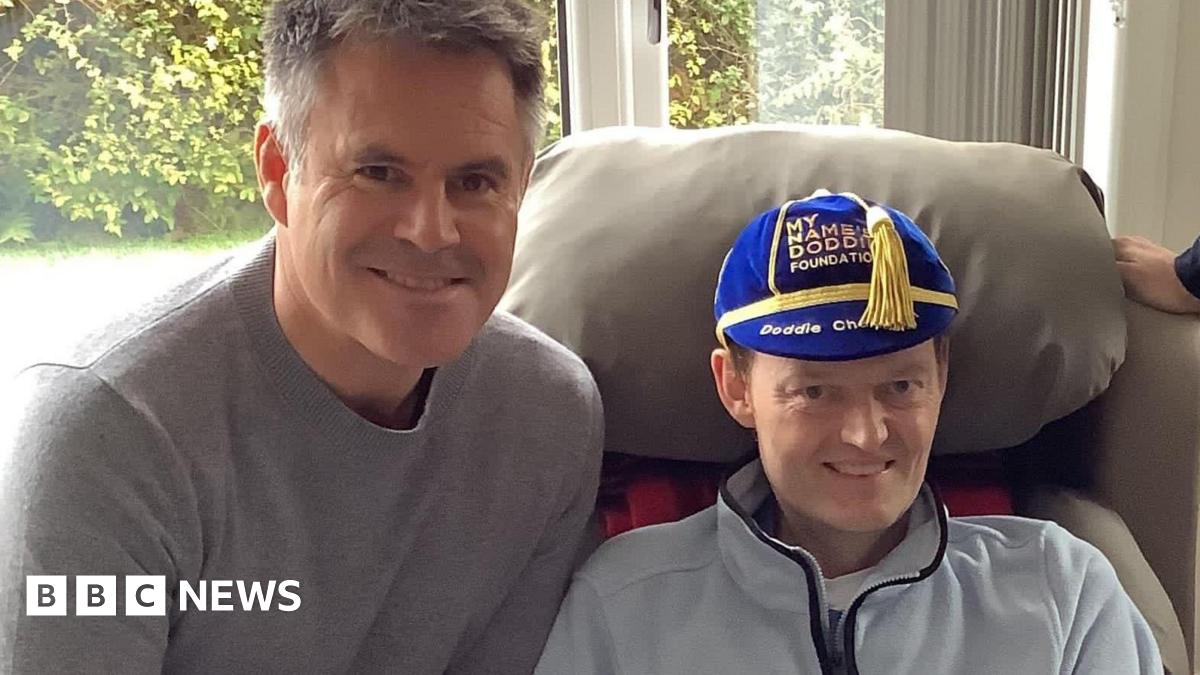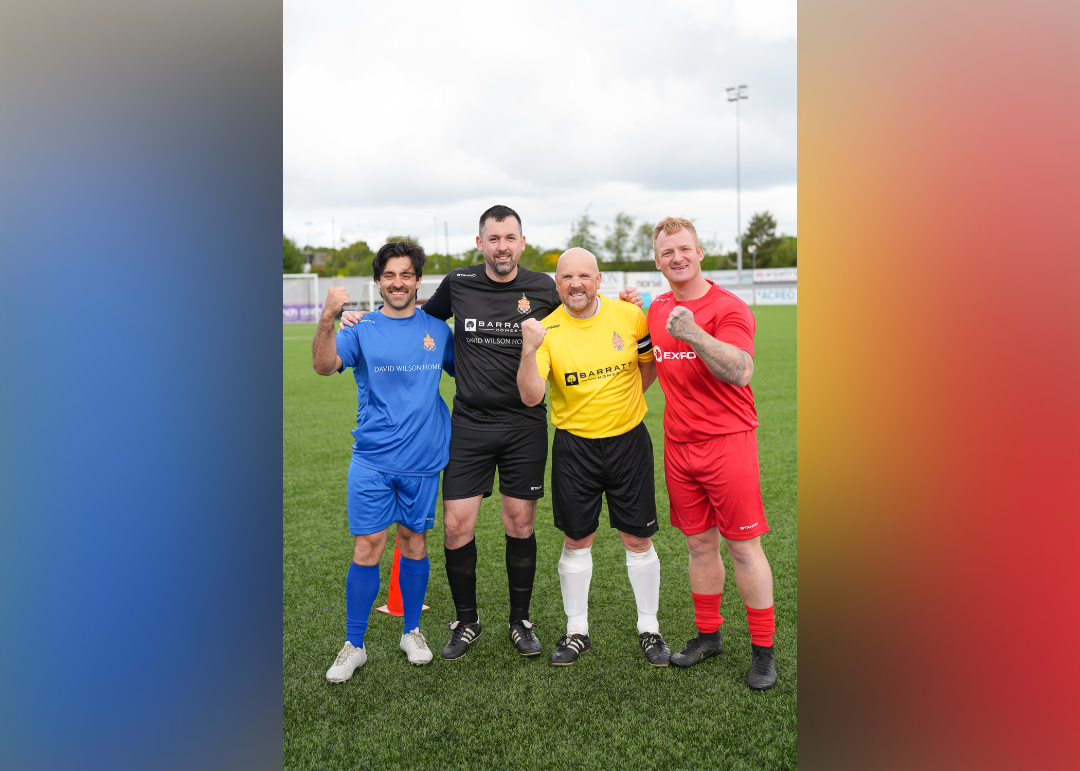Football
David Scott: Funeral held for ‘the journalist’s journalist’
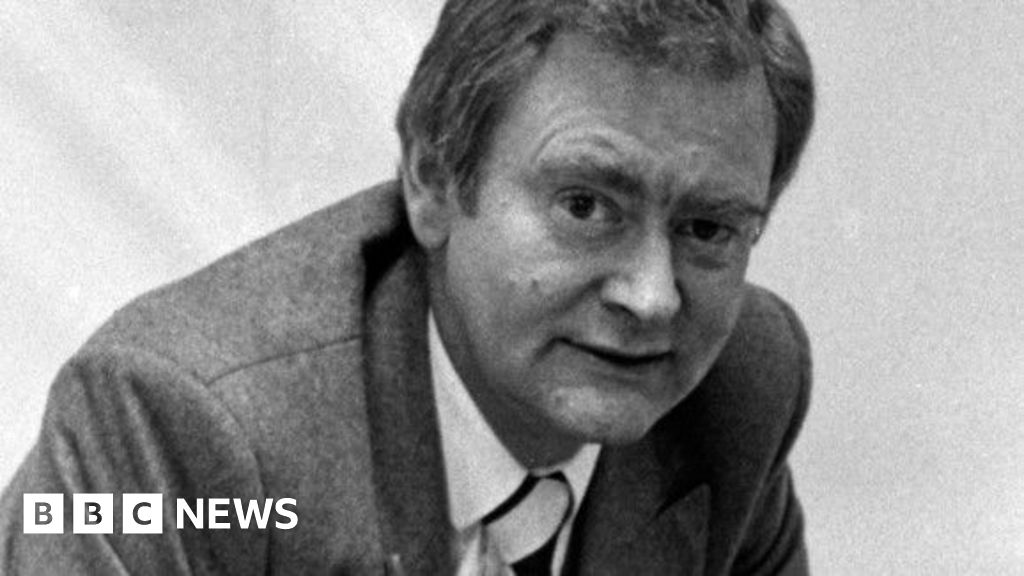
By Craig Williams, BBC Scotland News
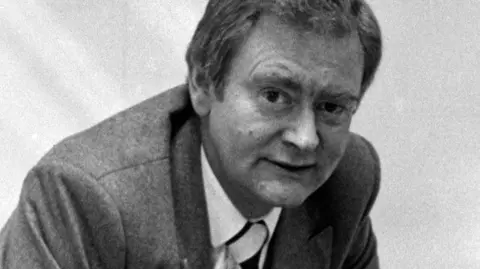 Alamy
AlamyThe funeral of the journalist and broadcaster David Scott, who died earlier this month aged 83, is set to take place.
Described as a titan of journalism, Scott was an influential reporter and editor for more than 30 years across Scottish newspapers and broadcasting.
He covered the trial of the Moors murderers and his reporting was crucial to the overturning of one of Scotland’s most notorious miscarriages of justice.
He retired in 1993 having revitalised STV news and current affairs and run the station as head of programmes.
But to his friends and colleagues, his greatest achievements came from his work as a dogged, passionate news journalist with “the best contacts in the business”.
Scott was born in Edinburgh in 1940 and decided early on to become a journalist.
In a radio interview with the BBC’s Colin Blane in 2009, he described how he first became interested in the trade.
“I think it started when I was probably 10, 11, 12. We lived in Edinburgh at the time and my father worked in newspaper advertising. He used to bring home some reporters and some journalists for dinner or a drink now and again,” he said.
“They always seemed to know who was saying what to whom and what was happening behind the scenes.
“And I was intrigued and amazed at this. And I think slowly it began to dawn on me. That’s what I wanted to do.”
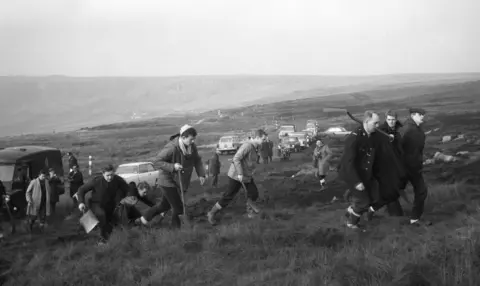 PA Media
PA MediaHe entered newspapers straight from school, first at the Edinburgh Evening Dispatch and then the Evening Citizen in Glasgow.
A talent for getting stories led him to the Scottish Daily Express, then one of the country’s biggest and best-resourced papers.
Scott built his reputation there and – aside from a short spell working in the US, which ended when he was concerned about being sent to fight in Vietnam – he covered some of the biggest events of the 1960s.
He later spoke of the effects of covering difficult stories, such as the Moors murders.
Over a period of 18 months Ian Brady and his accomplice, Myra Hindley, kidnapped and murdered five children in north-west England.
Scott recalled: “The Moors murders – I still cannot hear on radio the tune The Little Drummer Boy, to which one of the British victims was murdered. I still cannot hear that without a shiver going down my spine.
“As a reporter you’ve got to divorce yourself from this and be able dispassionately to inform the readers, the listeners or the viewers.”
He reported on the Ibrox disaster, when 66 fans died in a crush as they left the stadium after the new year Old Firm match. He described the effect as “numbing”.
Scott joined the BBC in 1968 and his reporting there was instrumental in helping to overturn the conviction of the Glasgow safe-blower Paddy Meehan, who had been wrongly jailed for the murder of a woman.
He moved between reporting, presenting, and senior editorial roles. There was a short return to newspapers at the start of the 1980s but by 1983 he was back in the BBC Scotland newsroom at Queen Margaret Drive in Glasgow’s West End.
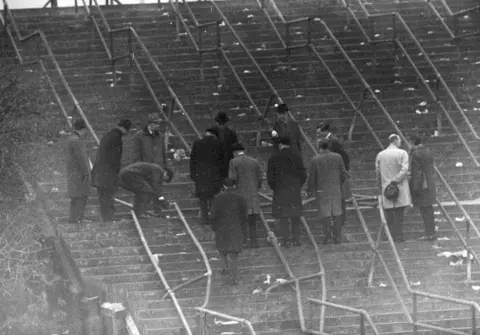 Getty Images
Getty ImagesOne of his Reporting Scotland co-presenters was Louise Batchelor.
She said: “David had contacts second to none, especially in the police and criminal world, and he knew what a story was. There’s no higher accolade.
“He also had a great sense of humour. We used to present the news together and it’s just as well that his off-camera asides were never picked up by a microphone.”
Allan Little, who would go on to become one of the BBC’s most distinguished foreign correspondents, joined the corporation’s Glasgow newsroom as a researcher in 1985.
“He was a huge figure in our industry. I learned early that he’d worked in America so that instantly made him, in my eyes, something special in Glasgow at that time,” he said.
“He was a very commanding presence in the workplace: the classic Glasgow newsroom alpha male. He commanded the room through sheer force of presence. I learned, on the rare occasions when he asked me to carry out research for him, that he was very exacting. He had high standards.
“He expected you to meet those standards. He wanted to nail everything down. He worked quickly, wasted no words, and asked tough questions not just of his interviewees but of junior colleagues like me,” he added.
‘A hard taskmaster’
Val Atkinson worked as a producer with Scott towards the end of his time at BBC Scotland.
She said: “David’s voice announced his presence – big, warm and authoritative. Although a big beast of journalism he never bullied or harassed and was always kind, supportive and generous in giving credit to others.
“However, he was a hard taskmaster. Just before leaving for STV he was made editor of a current affairs series which transmitted on a Thursday night on which I worked. More often than not a carefully crafted film would be thrown out on the Wednesday for a better story.”
In his memoir of his time in Scottish journalism, the late Kenneth Roy remembered Scott as “the journalist’s journalist”.
“Skilled in both newspapers and broadcasting, he wrote terse, muscular prose and had the best contacts in the business, particularly on both sides of the law.
“His reward for years of brilliant service to the BBC was a preemptory demand to clear his desk when he announced that he was deserting to the opposition as Scottish Television’s head of news”.
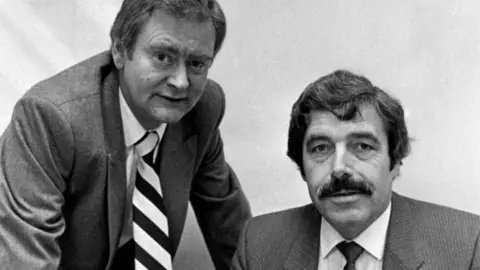 Alamy
AlamyIf there were doubts about how the journalist’s journalist would manage the move from reporter to executive, Scott did not share them.
“It was huge fun, and team-building is just one of the great pleasures in life. You see it slowly evolve,” he said.
“You put people into positions. You try and tell them and pass on some of the knowledge that you’ve gained, some of the expertise, some of the tricks of the trade. And you see those people developing. That was huge fun to me.”
One of those was Blair Jenkins, who Scott took with him from the BBC to relaunch STV’s news programme Scotland Today.
“Two things made David Scott stand out as a great journalist. He had better contacts than anyone else I ever worked with,” he said.
“People trusted him with important and interesting information. He always brought in more stories than anyone else, even when he was the boss and sitting behind a desk.”
A TV legacy
He added: “The second thing was his determination. There were few more impressive sights in Scottish journalism than David Scott in his heyday in pursuit of a story.
“He pushed us all pretty hard, but he did make you feel that the story you were working on was the most important thing in the world that day.
“He loved the camaraderie and the daily drama of a newsroom and he inspired loyalty and affection in those of us who had the pleasure of working with him.”
Scott was promoted to controller of programmes at STV in 1990. The channel’s former political editor, Bernard Ponsonby, credits him with revolutionising their output.
“He turned the department into a serious outfit. The result was a razor sharp focus on stories that mattered to people.
“Politics was refreshed with the addition of Margo MacDonald. Jimmy Reid made documentaries. Programmes like Scottish Women and Scottish Assembly were pioneering.
“STV bristled with great stories and even greater programmes on David Scott’s watch. His legacy still defines STV News to this day.”
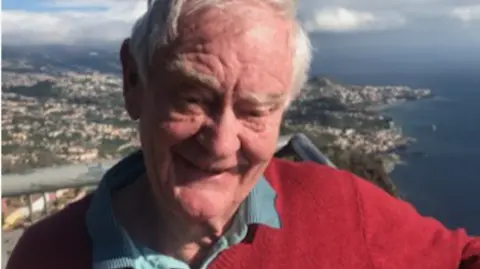 The Scott Family
The Scott FamilyScott retired early in 1993, aged just 53. But he remained a big name in his trade.
“He was a near permanent figure in the hostelries of Glasgow’s West End and was a fantastic lunch companion, where his astonishing recall for stories of the past transported his companions back to another era,” said Bernard Ponsonby.
The former STV journalist and presenter Sheena McDonald paid tribute to the journalist and the man.
“I attended an STV reunion event some years ago, and for the first time met the real David Scott – talkative, witty and genial,” she said.
“My experience of working with him in the 1980s was, of course, different. He was reliably disciplined, uncompromising, demanding and precise – so a good presence and influence on both news-gathering and presentation.
“But it was such a pleasure to share a drink with him decades after I had moved on from STV, and experience the man behind the professional.”







